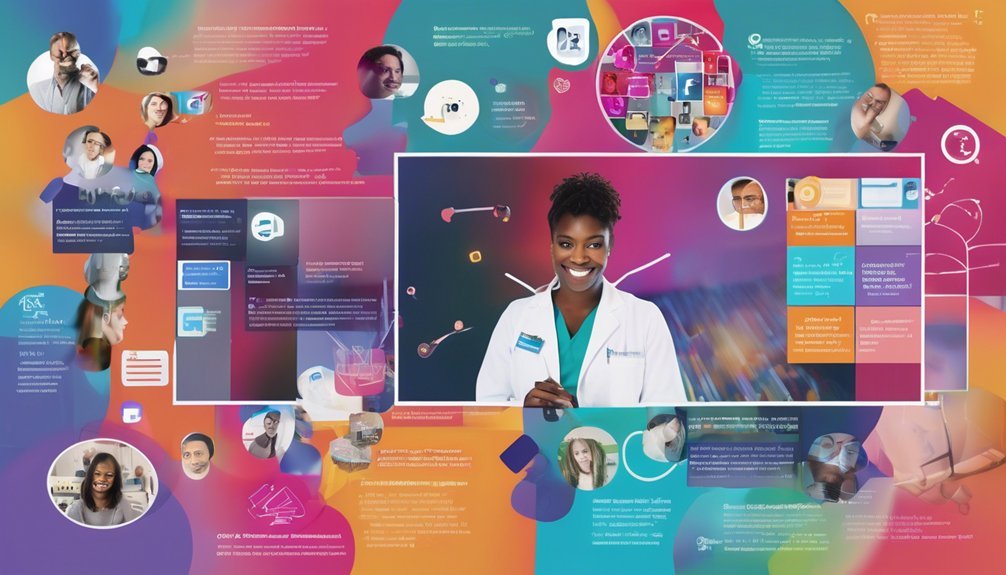When you encounter miracle testimonials on social media, it’s easy to feel drawn in by the emotional narratives they present. However, these personal stories often lack the robust scientific backing necessary for informed health decisions. Understanding the difference between anecdotal evidence and empirical research is crucial. As you sift through these claims, consider how they may influence your perceptions and choices. What evidence lies behind the stories you see?
Key Takeaways
- Miracle testimonials on social platforms often rely on emotional narratives, which can distort critical assessment of their validity.
- Scientific lab data is based on rigorous research, providing evidence that can confirm or refute claims made in testimonials.
- Evaluating testimonials requires cross-referencing with credible scientific studies to distinguish between anecdotal evidence and empirical validation.
- Emotional responses triggered by testimonials can cloud judgment; skepticism is essential when assessing their authenticity and reliability.
- Combining anecdotal experiences with robust scientific research fosters a balanced understanding of health claims and promotes informed decision-making.
The Allure of Miracle Testimonials: Why We Believe

While you might approach miracle testimonials with skepticism, their emotional appeal often sways even the most critical thinkers.
Miracle marketing relies on the power of narrative, showcasing personal stories that resonate deeply. These testimonials create a sense of testimonial trust, making it easier for you to believe in the product’s potential.
Emotional connections can overshadow rational assessment, leading to a willingness to accept extraordinary claims. When individuals share their transformative experiences, they often invoke empathy, prompting you to consider the possibility of similar outcomes.
Emotional narratives can cloud judgment, encouraging belief in extraordinary claims through shared transformative experiences.
This psychological effect can be compelling, especially in a world where people seek solutions to their challenges. Understanding the allure of these testimonials can help you navigate consumer choices more effectively while serving others with informed guidance.
The Psychology Behind Consumer Trust in Social Media
Miracle testimonials are just one facet of a broader phenomenon: the psychology of consumer trust in social media. You’re likely influenced by social proof, where the opinions and experiences of others shape your beliefs. When you see numerous positive testimonials, it triggers an emotional appeal that can override skepticism.
Here’s a simplified view of how these elements interact:
| Element | Description | Impact on Trust |
|---|---|---|
| Social Proof | Endorsements from peers | Increases perceived value |
| Emotional Appeal | Feelings evoked by testimonials | Enhances relatability |
| Credibility | Source reliability | Builds long-term trust |
Understanding these psychological aspects helps you navigate claims on social media, empowering you to make more informed choices.
Evaluating the Credibility of Online Claims
As you encounter various claims on social media, it’s crucial to assess their credibility to avoid falling for misinformation.
Start by employing fact-checking strategies, such as verifying sources and cross-referencing information from reputable outlets. Look for signs of testimonial authenticity; genuine testimonials often include specific details and measurable outcomes rather than vague praise.
Be wary of overly emotional or sensationalized claims, as they can signal manipulation. Engage in discussions with knowledgeable individuals or communities to gain diverse perspectives.
The Role of Scientific Research in Health Decisions

Scientific research plays a pivotal role in informing health decisions, as it provides evidence-based insights that can guide individuals in making informed choices.
By relying on rigorous studies and clinical trials, you can identify effective treatments and interventions grounded in evidence-based practices. This approach not only enhances your understanding of health options but also empowers you to evaluate potential risks and benefits critically.
Informed decision-making is essential for promoting better health outcomes, as it encourages you to distinguish between anecdotal claims and scientifically validated information.
Bridging the Gap: Finding Balance Between Anecdotes and Evidence
While personal anecdotes can provide valuable insights into individual experiences, relying solely on them can lead to misleading conclusions. You must recognize the distinction between anecdotal evidence and scientifically backed data.
Anecdotes often lack the rigor of empirical validation, making them unreliable for drawing broad conclusions. To serve others effectively, consider combining personal stories with robust research. This balance enhances understanding and builds trust in the information shared.
Anecdotal evidence can mislead; pairing personal stories with solid research fosters trust and deeper understanding.
Encourage critical thinking by evaluating testimonials against scientific findings, ensuring that individuals aren’t swayed by isolated experiences. By integrating anecdotal insights with empirical data, you can foster a more informed perspective that empowers others to make sound health decisions.
Ultimately, bridging this gap is vital for promoting well-rounded, evidence-based approaches.
Frequently Asked Questions
How Can I Spot Fake Testimonials on Social Media?
To spot fake testimonials on social media, watch for red flags like overly emotional language or vague claims. Use verification methods such as checking sources and seeking independent reviews to ensure authenticity and provide reliable information.
Are Miracle Products Ever Backed by Legitimate Scientific Studies?
While some miracle claims sparkle like diamonds, true scientific validation often reveals their flaws. You’ll find legitimate studies supporting few products; scrutinize the evidence rigorously before believing in transformative promises that seem too good to be true.
What Should I Do if I Experience Side Effects From a Product?
If you experience side effects from a product, prioritize your safety. Stop using it immediately, consult a healthcare professional, and report the issue to relevant authorities for product safety. Your well-being is essential for informed choices.
Can Testimonials Influence My Health Decisions Despite Lack of Evidence?
Testimonials can significantly impact your health choices, even without solid evidence. While they might resonate emotionally, it’s crucial to prioritize objective data and research to make informed decisions that genuinely benefit your well-being and those you serve.
How Do Companies Ensure the Authenticity of User Testimonials?
Approximately 70% of companies implement user verification processes to enhance testimonial integrity. By confirming identities and experiences, they ensure authenticity, fostering trust among consumers who seek reliable information before making health-related decisions.
Conclusion
In the quest for health solutions, it’s easy to get swept away by the tide of miracle testimonials. However, just as a lighthouse guides ships through fog, scientific research illuminates the path to informed decisions. By critically evaluating online claims and recognizing the distinction between personal anecdotes and empirical evidence, you can navigate the murky waters of health information. Striking a balance between emotional appeal and factual data empowers you to make choices grounded in reality, not just hope.





